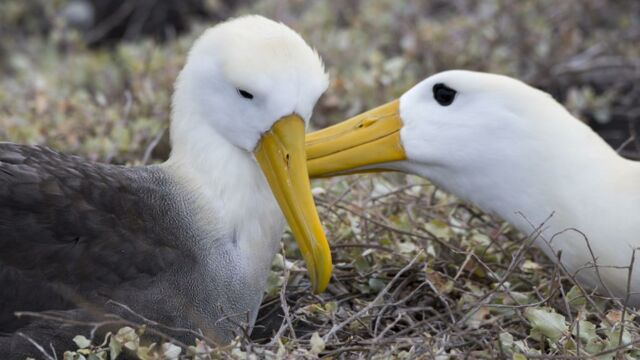Researchers have blamed global warming for the increase in the number of albatrosses that are splitting from each other. They believe warmer waters are pushing the birds, thought to be one of the most loyally monogamous creatures, to ‘divorce’.
Discover our latest podcast
Super-Duper Human
Black-browed albatrosses would typically stick with their chosen partners, with only an estimated 1-3% of the species splitting up in pursuit of better romantic interests.
However, a study conducted by the Royal Society shows that an average of 8% of albatross couples are going their separate ways as temperatures rise, and water bodies become warmer.
The study looked at a wild population of 15,500 breeding pairs in the Falkland Islands over 15 years.
For seabirds like the albatross, warmer waters mean fewer fish, less food and a harsher environment. This leads to an increase in the mortality rate of their young, while their stress hormones increase, pushing them farther afield to hunt.
Scientists have been interested in the love lives of these species of birds for their loyalty to each other.
Dr Graeme Elliot is a principal science adviser at New Zealand’s department of conservation, and has been studying albatrosses in the country’s waters for three decades.
There are all these things we think of as being super-duper human

Risk of Extinction
The seabirds typically live up to 50-60 years. They learn at an early age the art of seduction through dance and would take long trips away from home as they get older. They are known to mate for life, loudly celebrating their reunion with a partner after a long absence.
Francesco Ventura, researcher at University of Lisbon and co-author of the Royal Society study, said they were surprised to learn that warmer waters were associated with unusually high rates of albatross couples splitting up, even when the lack of fish were accounted for. He added:
We propose this partner-blaming hypothesis – with which a stressed female might feel this physiological stress, and attribute these higher stress levels to a poor performance of the male.
The researchers have warned that the birds risk going extinct if the global warming trend continues. Elliot said:
We kind of need an international campaign to save these birds. If we don’t turn it around, they’ll go extinct.















